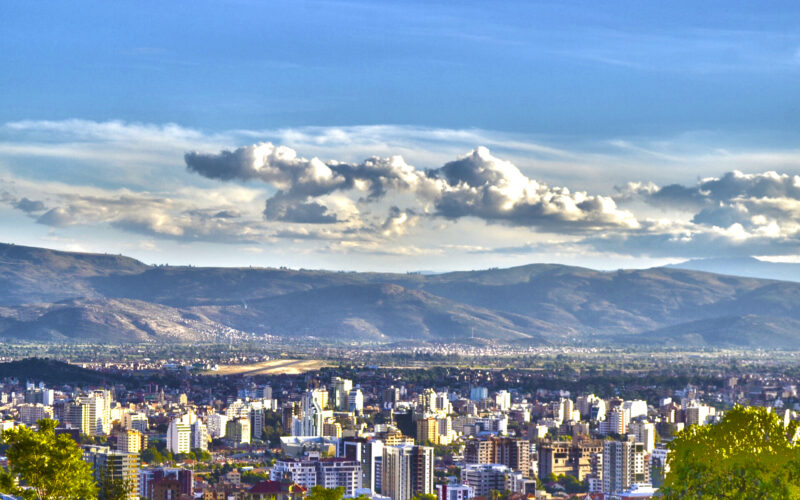This article was written by Mauricio Dulón, CEO of Cetus Group Bolivia.
LatAm List – Bolivia is not necessarily well-known for its startups or its startup ecosystem due to its relatively recent appearance on the Latin American tech scene. However, over the past five years, Bolivia has been one of the top-performing economies in Latin America, which has fueled the creation of several startups in the country. Most of these companies were created to serve the local market; however, over the past two years, more startups have begun to focus on Latin American countries as the home market. As a result, the Bolivian startup ecosystem has grown stronger and is rapidly gaining steam.
Bolivia is located in the heart of South America, thus providing startups with a perfect location from which to expand into other countries in the region. Bolivia has a population of roughly 12 million people, a very small market by regional standards, yet Bolivia has a modern banking system and relatively good internet access, with one of the highest rates of smartphone penetration per capita in the region. Although Bolivia’s Internet is still among the slowest in LatAm, most Bolivians can access the Internet through their smartphones. These benefits make Bolivia a good place to launch a startup or test an MVP in a small, controlled environment.
One of the main obstacles for Bolivian startups has been lack of access to capital. Due to financial regulations, access to capital through the equity market is not possible for a startup in the country. Due to a lack of regulation, crowdfunding is also not an option in Bolivia so startups have to bootstrap until they can expand out of the country.
In recent months that pattern has started to change. Ultragrupo, which owns Ultracasas.com, the main real estate portal in Bolivia, has received two rounds of funding, totaling $960K. While the seed round was led by foreign investors, the latest bridge round was funded by local investors, a big surprise and a first in Bolivia. Ultragupo is now valued at $4.5M and is in pursuit of a Series A round to expand in the region. Similarly, tuGerente.com, an end-to-end business software for SMEs, has received $300K in pre-seed funding from local private investors and equity-free grants; they are now seeking a bridge round to grow throughout the region.
Global companies like Delivery Hero, which owns PedidosYa, have also taken notice of the budding startup ecosystem in Bolivia. The delivery app Netcomidas was acquired last year by Delivery Hero for an undisclosed amount. In 2017, Khipu, an electronic payments startup from Chile, invested in Khipu Bolivia, which is now one of the main players in the e-commerce industry in the country. Finconecta, a fintech marketplace with global exposure is currently showcasing five Bolivian startups to the financial industry worldwide.
Recent rounds of investment and acquisitions have provided optimism that Bolivian startups can grow outside of the country. Yaigo, an on-demand delivery app, has rapidly expanded in Bolivia and is now preparing to operate in Argentina, Paraguay, and Guatemala in 2020. Initium, a fintech app that aims to facilitate onboarding processes for the banking and microfinance industries is currently expanding operations in South and Central America, as well. Elemental, a startup that teaches programming and technology skills to kids, is looking to expand into Chile and México. tuGerente.com is already operating in Chile. This expansion is showing Bolivia that the local startup ecosystem has potential, although it still lacks the resources to create a dynamic environment for entrepreneurs.
The Bolivian market offers many advantages to startups, such as highly-skilled and creative software developers and low labor costs. Cochabamba is a tech hub where some of the best software-developing companies in the country are located, making it a good laboratory for testing ideas before expanding in Latin America or abroad. For instance, JalaSoft develops solutions for companies like Microsoft and trains its engineers to provide offshore software development for global businesses.
Until very recently, there were no startup accelerators in Bolivia. Today, two accelerators, Pista8 and Solydes are now planning programs to prepare startups for success in the country. The Bolivian government also started providing its first startup support programs this year some limited funds to develop MVPs. The Bolivian Congress will soon consider a Startup Law that will, among other things, create an entity that will promote and help the work of startups.
The Bolivian startup system has potential. While the issues of funding and mentoring need to be resolved before Bolivian startups can really take off, giving the Bolivian startup ecosystem exposure to foreign investors and foreign accelerators could be the first step. As other countries around the region model what it takes to create a dynamic startup ecosystem, Bolivia may be able to follow that path to develop its own tech movement using lessons learned from its neighbors.


